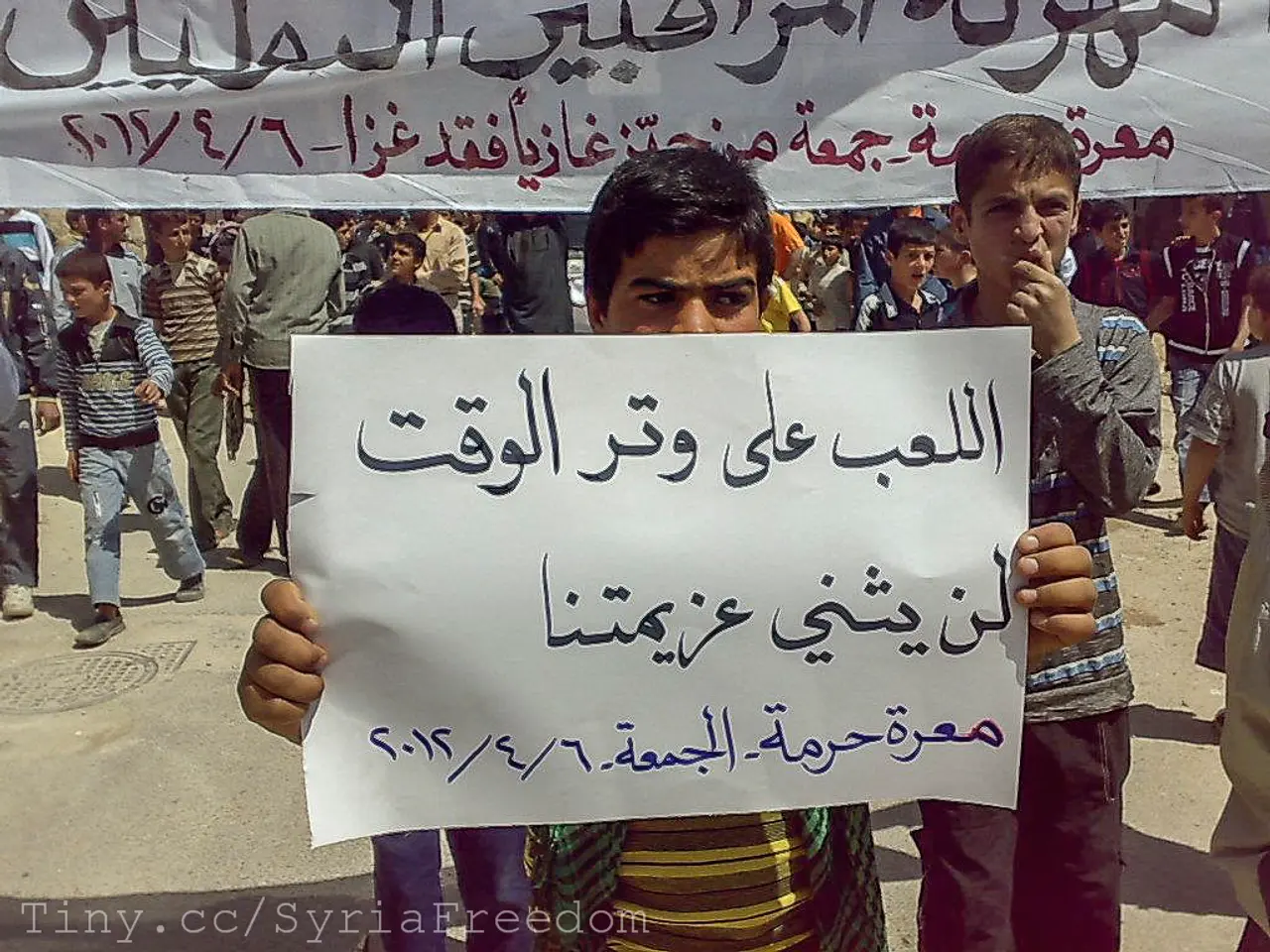Federal authorities urged complete financing from both federal and state sources for those seeking refuge from Ukraine.
In Germany, municipalities are urgently demanding full and permanent reimbursement from federal and state governments for costs incurred due to the switch of Ukrainian refugees from citizens' income benefits (Bürgergeld) to asylum-seeker benefits. This transition is projected to cost local authorities around 1.3 billion euros annually[1].
The German Association of Cities and Municipalities supports the shift in benefits, specifically for newly arriving Ukrainian refugees, but stresses the need to maintain immediate access to employment, language courses, and labor market integration for the refugees. They also call for clear legislation to ensure federal funds allocated to states are directly passed on to municipalities and demand a straightforward solution for health insurance coverage to avoid further municipal costs[1].
Ralph Spiegler, president of the Association of Towns and Municipalities, has been vocal about the issue, urging the federal and state governments to relieve municipalities of these costs. He expects the governments to take over the costs completely, not just share them[2]. Spiegler has also expressed his concern about the future classification of newly arriving Ukrainian refugees into the asylum-seeker benefit system[3].
The issue is politically contentious. The CDU/CSU coalition partners advocate for broader restrictions on benefits and stronger incentives for labor market participation. In contrast, SPD officials prefer to adhere to existing coalition agreements that limit changes only to newly arrived refugees and uphold current support structures[1][4]. Meanwhile, there is also a government plan to reduce welfare benefits for Ukrainian refugees who arrive after April 1, 2025, transitioning them exclusively to asylum-seeker benefits instead of citizen’s allowance[1][4].
Despite these plans, the full reimbursement of local costs remains a key demand from municipalities that has not yet been definitively resolved[1]. The Association of Towns and Municipalities continues to advocate for the municipalities' concerns regarding the costs of the change in legal status for Ukrainian refugees[5].
| Aspect | Status/Response | |---------------------------------------|-------------------------------------------------------------------------------------------------| | Demand by municipalities | Full and permanent reimbursement for costs of switching benefits; approx. 1.3 billion euros/year | | Municipal advocacy | Maintain employment access, language training, integration, clear funding flow, and health coverage solutions | | Federal/state government stance | CDU/CSU push for stricter benefit rules and labor incentives; SPD supports limited changes only for new arrivals | | Benefit changes planned | From April 1, 2025, newly arrived Ukrainians to receive asylum-seeker benefits instead of citizens’ allowances | | Reimbursement resolution | No final agreement; municipalities continue pressing for full relief |
This reflects an ongoing debate and political negotiation as of August 2025[1][4].
[1] Rheinische Post (Friday edition), August 2025 [2] Spiegler's comments to Rheinische Post (Friday edition), August 2025 [3] Spiegler's concerns about future classification, August 2025 [4] CDU/CSU and SPD coalition agreements, April 2025 [5] Association of Towns and Municipalities advocacy efforts, August 2025
The ongoing debate in Germany involves discussions about policy-and-legislation concerning the switch of Ukrainian refugee benefits, a contentious issue in politics and general news. Municipalities are demanding full and permanent reimbursement for the estimated 1.3 billion euros in costs annually incurred due to the transition, while also advocating for immediate access to employment, language courses, and labor market integration for the refugees.






